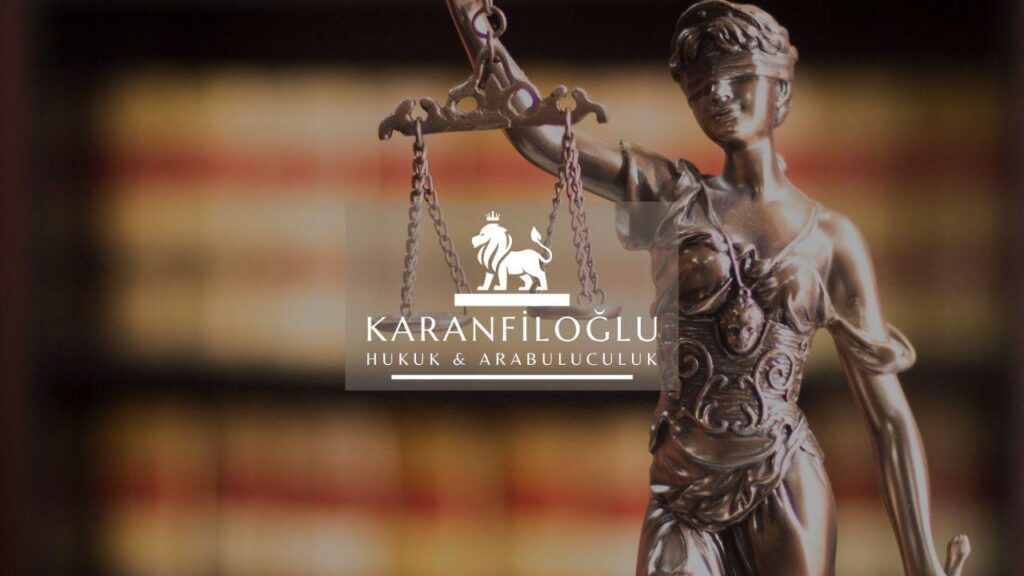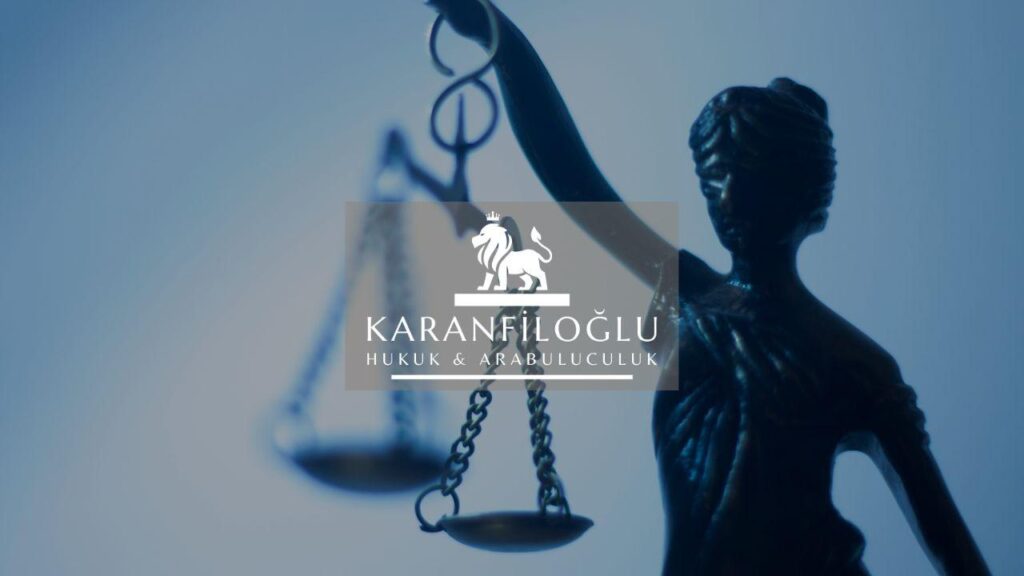Navigating the complex world of construction contracts requires a keen understanding of both local and international regulatory frameworks. In Turkey, the application of FIDIC (Fédération Internationale des Ingénieurs-Conseils) standards in construction contracts is prevalent, providing a set of internationally recognized templates that streamline the negotiation and execution of infrastructure projects. Understanding the nuances of FIDIC contracts in the context of Turkish law is crucial for any entity engaged in construction activities. At Karanfiloglu Law Office, our expertise in both Turkish legal statutes and FIDIC guidelines positions us uniquely to offer precise and comprehensive legal counsel. Our team ensures that all contractual obligations are meticulously drafted and that parties are well-informed of their legal rights and responsibilities. Whether you are a contractor, developer, or investor, understanding FIDIC within Turkey’s legal framework can mitigate risks and enhance the successful completion of projects.
Understanding FIDIC in Turkish Construction Contracts
The implementation of FIDIC contracts within the Turkish construction industry provides a structured and standardized approach to managing projects, thereby harmonizing international practices with domestic regulations. Turkish construction law accommodates FIDIC contracts, allowing for a balanced approach to risk allocation and contract administration. The FIDIC suite, with its array of clauses covering various aspects of construction, such as dispute resolution and performance obligations, integrates well with the requirements set forth by Turkish legislation. Adopting FIDIC contracts means adapting to a legal framework that supports international standards while considering local nuances, thus helping stakeholders, from contractors to investors, navigate potential legal challenges efficiently. At Karanfiloglu Law Office, we guide our clients through the complexities of these contracts by offering strategic advice tailored to uphold the legal sanctity of their agreements, ensuring compliance with Turkish mandates while adhering to globally recognized protocols.
One significant advantage of utilizing FIDIC contracts in Turkey is the emphasis on clarity and transparency in contract terms, which reduces the likelihood of disputes arising from ambiguities. Given the intricate nature of construction projects, clearly defined roles, responsibilities, and conditions of contracts are pivotal in circumventing legal complications. Turkish courts often recognize and respect the conditions set out in FIDIC contracts, provided they do not contradict mandatory local law provisions. Moreover, these contracts include mechanisms for alternate dispute resolution such as arbitration, which aligns well with Turkey’s increasing preference for resolving disputes outside the courtroom, thereby ensuring faster and cost-effective solutions. At Karanfiloglu Law Office, we offer dedicated support to clients in drafting and negotiating FIDIC contracts, safeguarding their interests while promoting efficient project execution in alignment with both international best practices and Turkish legal requirements.
When considering the intersection of FIDIC contracts and Turkish construction law, it is essential to recognize the potential for adaptation and customization to meet project-specific needs. The adaptability of FIDIC contracts allows parties to negotiate specific terms that reflect the particularities of the Turkish market, thereby enhancing the contract’s effectiveness in addressing unique project requirements. For instance, provisions regarding payment schedules, local supply chain utilization, and compliance with specific Turkish regulatory standards can be integrated to ensure compliance and operational efficiency. At Karanfiloglu Law Office, our extensive knowledge of both FIDIC models and Turkish legal stipulations empowers us to draft bespoke contract clauses that safeguard our clients’ interests. By carefully customizing FIDIC contracts within the parameters of Turkish legislation, we help stakeholders achieve optimal project outcomes, fostering a collaborative atmosphere among parties and promoting sustainable growth within the construction sector.
Key Provisions for Successful Projects
A clear grasp of key provisions in FIDIC contracts can significantly contribute to the successful execution of construction projects in Turkey. One critical element is the delineation of responsibilities between parties, which FIDIC contracts achieve through precise definitions of the roles and duties of involved stakeholders such as the employer, contractor, and engineer. This clarity is essential in avoiding disputes and ensuring smooth project advancement. Another important aspect is the establishment of clear mechanisms for handling variations in the scope of work, which are commonplace in construction projects. FIDIC contracts offer a structured approach to managing such variations, stipulating how contractual adjustments in time and costs should be addressed. At Karanfiloglu Law Office, we ensure that these provisions are customized to align with Turkish legal standards, helping clients navigate the challenges of complex infrastructures while ensuring adherence to regulatory and contractual obligations.
Moreover, the dispute resolution mechanisms embedded within FIDIC contracts are of paramount importance in fostering project success. FIDIC provides a well-outlined process for dispute adjudication, which includes provisions for Dispute Adjudication Boards (DABs) and arbitration, offering parties a structured pathway to resolve conflicts amicably and efficiently. In the Turkish context, these dispute mechanisms must be carefully integrated with local adjudicatory processes to ensure enforceability and compliance with Turkish judicial standards. At Karanfiloglu Law Office, we emphasize tailoring these frameworks to reflect Turkish legal nuances, thereby promoting a seamless resolution process that minimizes delays and financial implications. Balancing the procedural rigors of international standards with the idiosyncrasies of Turkey’s legal ecosystem, our legal team is adept at guiding clients through potential pitfalls and ensuring that disputes are managed proactively to safeguard project integrity and achieve timely completion.
Finally, dealing with unforeseen events is another essential component of FIDIC contracts that can impact the trajectory of a construction project. These events may include force majeure, site conditions, or unforeseen circumstances that could delay or alter the project scope. FIDIC provides mechanisms for addressing such contingencies by allowing extensions of time and adjustments in project costs, ensuring that projects can adapt to changing circumstances without compromising contractual commitments. At Karanfiloglu Law Office, we assist clients in effectively incorporating these provisions into their construction contracts, taking into account Turkey’s specific legal requirements and the practical realities of the construction industry. By accurately forecasting potential risks and embedding resilience into contract terms, we help ensure that our clients can navigate unexpected challenges efficiently, maintaining project momentum and mitigating any adverse impacts on completion or finances.
Navigating Legal Challenges in FIDIC Agreements
Navigating the legal challenges associated with FIDIC agreements within Turkey mandates a thorough comprehension of both FIDIC’s standardized provisions and the distinctive aspects of Turkish construction law. Given that Turkish law often incorporates principles specific to national legislation, discrepancies may arise when FIDIC terms are applied. Issues such as variations, claims, and dispute resolution require careful harmonization with Turkish statutory requirements to ensure enforceability. For example, certain FIDIC contract clauses may necessitate adjustments to align with the Civil Code and other regulatory standards that govern construction practices in Turkey. At Karanfiloglu Law Office, we adeptly identify and address such potential conflicts, ensuring that our clients are not only aligned with international FIDIC criteria but also compliant with domestic legal obligations, thereby safeguarding their interests throughout the lifespan of the project.
A prevalent legal challenge in FIDIC agreements under Turkish jurisdiction is the dispute resolution mechanism. While FIDIC contracts commonly incorporate arbitration clauses, parties must consider the Turkish International Arbitration Law, which dictates specific procedures and conditions for arbitration. Additionally, recognizing the jurisdiction of Turkish courts in certain cases becomes crucial, particularly when injunctions or interim measures are needed to safeguard project interests. Moreover, Turkish construction practices might involve public procurement laws that bring additional layers of compliance when public entities are involved. Karanfiloglu Law Office possesses the expertise to guide clients through these complexities, ensuring that arbitration agreements are effectively structured and potential conflicts with local adjudication preferences are minimized. By providing tailored advice, we enable our clients to anticipate challenges and stay proactive, ensuring smoother project execution in alignment with both international and national legal standards.
Another significant challenge lies in managing variations and claims under FIDIC contracts within the Turkish legal framework. FIDIC’s provisions for handling changes in scope and processing claims must be carefully adapted to adhere to Turkish legislation on contract amendments and claims. The procedure for notifying, quantifying, and resolving claims can become intricate if it conflicts with the procedural norms established by Turkish law. At Karanfiloglu Law Office, our lawyers meticulously review contracts and project documents to ensure that any variations or claims are addressed in a manner that is both compliant with FIDIC guidelines and harmonious with Turkish regulations. This dual approach helps mitigate the risk of disputes and prevents potential delays in project timelines. Our proactive management and diligent oversight enable our clients to navigate variations and claims efficiently, safeguarding contractual relationships and optimizing project outcomes across the Turkish construction landscape.
Disclaimer: This article is for general informational purposes only and you are strongly advised to consult a legal professional to evaluate your personal situation. No liability is accepted that may arise from the use of the information in this article.







